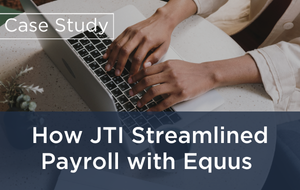Executive summary:
Remote and cross-border work can unintentionally trigger Permanent Establishment (PE), exposing your business to corporate tax liability, audits, and compliance obligations in foreign countries. This blog breaks down how common employee activities like cross-border business trips, working from home, and signing contracts in another country can trigger PE. Keep reading to find out what some risks are and how to stay compliant.
Top 5 Ways to Accidentally Trigger PE

- Remote Work from Abroad: Working from home in another country may be enough to establish PE.
- Contract Signing: Managers negotiating or signing contracts abroad can trigger corporate obligations.
- Use of Shared Workspaces: Regular use of a co-working space can count as a fixed place of business.
- Untracked Time: Even short but frequent trips can trigger a PE.
- Lack of Visibility: Not knowing where employees are working makes you more prone to PE risks.
What Is Permanent Establishment?
PE is a legal concept used to determine if your company has a taxable presence in another country. PE is created when business activity in another country meets a threshold that triggers local corporate tax and compliance obligations. This threshold varies by country, with rules often defined by international tax treaties.
Why PE Matters for Global Businesses
PE is commonly triggered by an obvious and intentional business presence, like opening an office or facility in another country. In these cases, businesses are more prepared for additional tax and compliance obligations.
Today, the surge in business travelers, remote work, and globally dispersed teams have made it easier than ever to unintentionally create PE. Key drivers of this risk include:
- Decentralized Operations: Remote work distributes company activity and business operations across multiple countries, often without a formal presence.
- Lack of Visibility: Employers don’t always know where work is being performed, especially with flexible or unsupervised arrangements.
- Increased Government Scrutiny: Governments are actively monitoring for signs of undeclared PE, enforcing compliance, and re-evaluating what constitutes PE.
The result: even well-intentioned businesses can face tax exposure, compliance demands, and audit risks they never saw coming.
Consequences of Creating an Accidental PE
Failing to identify and mismanaging PE risks can have serious consequences for a business:

- Unexpected Tax Liability: A PE exposes corporate profits and the personal income of traveling employees to taxation.
- Compliance Obligations: Employers must follow labor laws, register in-country, maintain financial documents, and submit annual tax filing.
- Increased Scrutiny and Audit Risks: Unrecognized PE can trigger audits, draining time and resources
,and potentially leading to fines or penalties.
PE Risk Is Real and Avoidable
PE is a complex issue. The rules are not clear-cut, and risk can emerge from common situations, resulting in significant tax and compliance consequences.
How the Equus Compliance Engine Helps
Equus provides the tools to proactively manage PE risk and stay ahead of global compliance challenges.
- Simplifies compliance with automatically tracking of global regulations, so you don’t have to.
- Runs real-time risk assessments as employee location or activity changes.
- Tracks employee travel and workdays across different jurisdictions.
- Standardizes compliance by applying consistent risk criteria to minimize errors.
- Maintains audit-ready records with a clear, traceable history of compliance decisions.
Next Steps with Equus

Want to see how others are addressing PE risks in today’s mobile work environment? Join the Equus Community, a new space for clients to share challenges, ask questions, and stay informed on the latest news on global mobility! Reach out to your Global Client Success Manager to learn more.
Learn more about PE and how it could impact your business in our in-depth analysis: The Accidental Taxable Presence.












